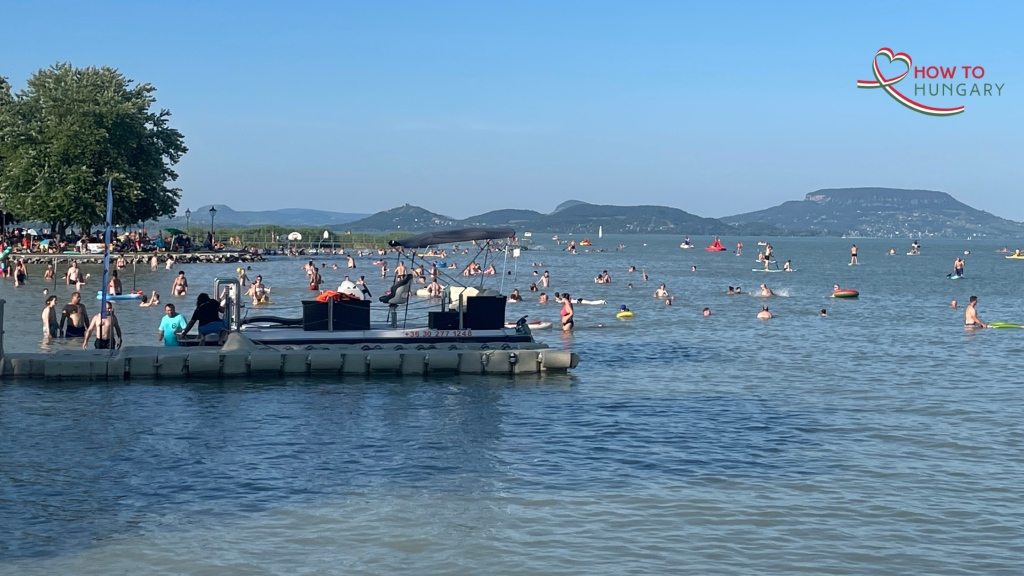Identity Protection Law update. As of 1 July, Hungary’s Településvédelmi törvény is officially in force – in theory, at least. On paper, more than 3,100 local councils now have the green light to decide who buys, who stays, and what it might cost them. In practice? Nothing so far. No council vote, no fresh local decree, no sign that your holiday home is about to slip through your fingers overnight.
I’m writing this from Balatongyörök, squeezed between family swims and an impending 36°C high. While the others plan their next dip, I’m watching council pages and legal bulletins, because this story isn’t finished just because the law exists.
What the Identity Protection Law promised
Back in April, headlines screamed that local councils would soon be able to “block outsiders” or slap stiff payments on incomers buying property. As Index reminded us, the draft gave municipalities “unprecedented scope to tie, or even forbid, title registration and address cards” – with talk of multi-million-forint contributions in hotspot towns such as the Balaton shore and the Budapest suburbs.
Real estate portal ingatlan.com warned that while outright bans were unlikely, coastal and commuter belts could impose steep conditions – and the proposal even flagged tweaks to Hungary’s local-tax law so that certain districts might levy extra fees on foreign buyers.
One day after launch: what’s actually happened?
No council has pulled the trigger (yet)
A sweep of official gazettes, council minutes and regional newsrooms on 2 July shows zero municipalities have adopted implementing by-laws. Staff in Alsóörs, Balatonalmádi and Érd all said they are “waiting for detailed guidance from the Interior Ministry”. Budapest’s inner districts? Utter radio silence.
Market mood: cautious curiosity, but steady
According to Ingatlan.com’s June summary, the number of new residential listings in the Lake Balaton region has already slipped about 5% year-on-year, a trend they attribute mainly to high borrowing costs and tighter forint liquidity, not to local policy chatter (Ingatlan.com Barometer, June 2025).
So far, no spike in cancellations has appeared in national transaction reports, and larger agencies remain publicly tight-lipped. In its last press comment, Ingatlan.com’s lead analyst, László Balogh, simply noted that “price divergence could appear if certain villages adopt local filters while others do not” – but stressed this remains hypothetical until the first by-law lands.
For up-to-date data, the Hungarian Central Statistical Office’s Q2 2025 housing index shows moderate softening around Balaton, but no sudden drops linked to the Identity Protection Law yet (KSH, June 2025).
Why the delay?
“Because the decision is in local hands, restrictions will only appear where in-migration fuels strong voter pressure,”
— Balogh László, Chief Analyst, Ingatlan.com
Councils first need to debate whether curbs are politically palatable, draft a by-law, run a consultation and clear any clash with Hungary’s constitution and EU law. That takes months, not days – and municipal elections are barely a year away.
Add a lack of template regulations from central government and it’s little wonder clerks are twiddling their thumbs. In smaller settlements the legal capacity simply isn’t there.
What this means for you
1. Buyers and sellers can proceed – but build a buffer
While the law lies dormant you can still exchange. However, insert a contract clause allowing extra time (or an exit) should the local council spring a new contribution fee.
2. Holiday-home hunters: keep your paperwork clean
Foreign nationals still need the usual county acquisition permit. Nothing in the new statute overrides that.
3. Watch the “usual suspects”
Expect first moves from Balaton villages where resident-to-second-home ratios are extreme (think Tihany, Zamárdi) and from price-squeezed commuter belts such as Biatorbágy. Bookmark the Hungarian Ministry’s of Justice Magyar Közlöny feed and your local council’s hirdetőtábla page.
The policy backdrop
The Identity Protection Law belongs to a wider government push to hand localities a toolbox against “speculative in-migration”. Alongside yesterday’s measure:
-
Town zoning powers were beefed up in May.
-
A draft decree on heritage-area transaction levies is in consultation until 15 July (scroll to page 4 of the explanatory note here). magyarkozlony.hu
None of these bite until councils choose to deploy them.
For a full background on the Településvédelmi törvény and how we got here, read my full series.
- Part 1:
Hungary Property Law 2025 - Part 2:
Hungary Property Law: Identity Protection - Part 3:
Hungary Identity Protection Property Law - Part 4:
Hungary Property Law Impact - Part 5:
Hungary New Property Law Is Here - Part 6:
Alsóörs as First Mover?

A full house at the Balatongyörök strand – families, kids, and plenty of locals cooling off together under the blazing summer sun.
My Balaton vantage point
From my desk, three paces from the walnut tree, the lake looks unchanged: paddle-boarders, the odd swan, and a steady stream of Külföldi number plates heading to InterSpar. Locals are chatting about beach-parking fees, not legal traps. Still, I’ll keep my phone charged: if Balatongyörök suddenly votes in a contribution levy while I’m mid-ice-cream, you’ll be the first to know.
Tomorrow promises sauna-like heat, so I’m signing off for a late swim. But rest assured: laptop and law texts will be back on the veranda by coffee-time.
If you want the bigger picture, beyond this law, my full HOW TO HUNGARY guide covers every practical step of buying, owning or renting here. From county permits to utility hook-ups to that delightful dance with the lakcímkártya, it’s all in one place, regularly updated, and unsponsored. Get your copy here.

Anikó Woods is a Canadian-Hungarian writer, technology specialist, and digital strategist who swapped Toronto traffic for Hungarian bureaucracy. She’s the creator of HOW TO HUNGARY: Budapest & Beyond. Since moving to Hungary in 2017, she’s been deep in the paperwork trenches – fact-checking, interviewing experts, and helping others make sense of the madness. Her writing turns chaos into clarity, with a few laughs (and wine recommendations) along the way.

0 Comments